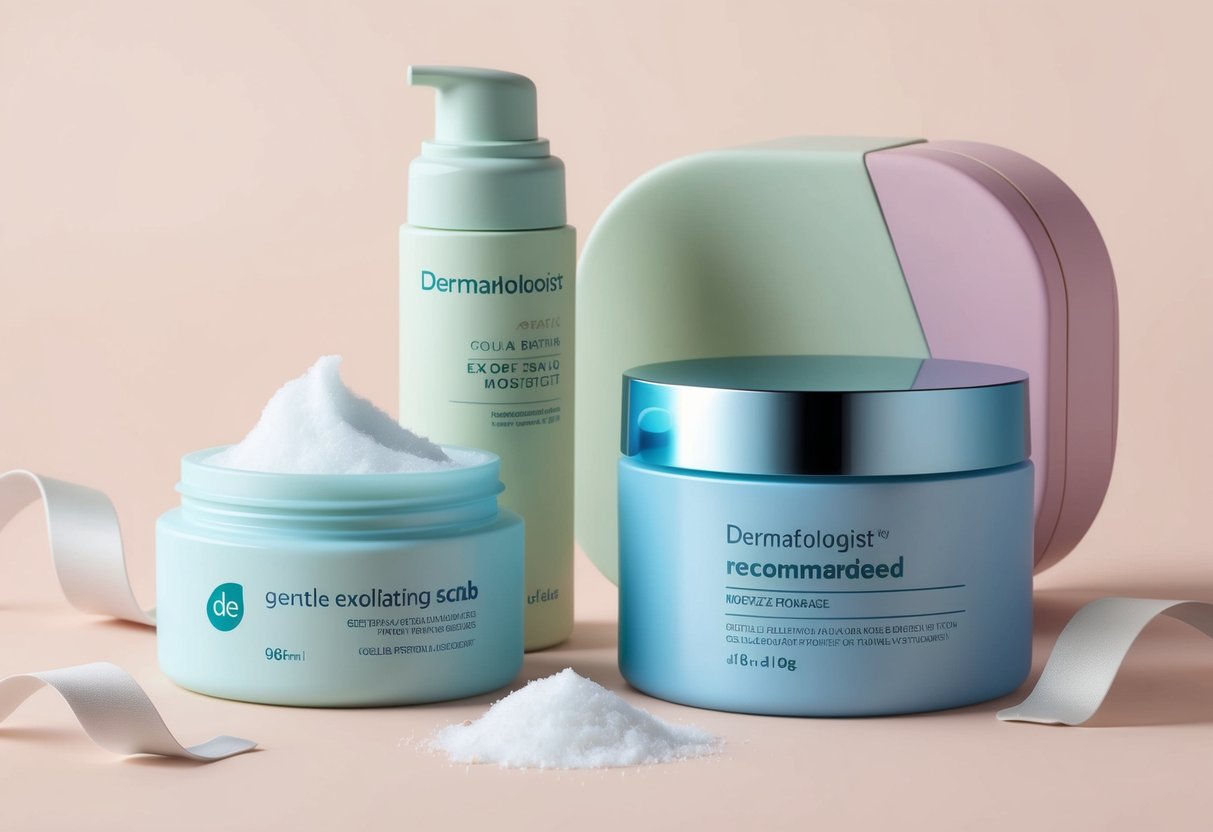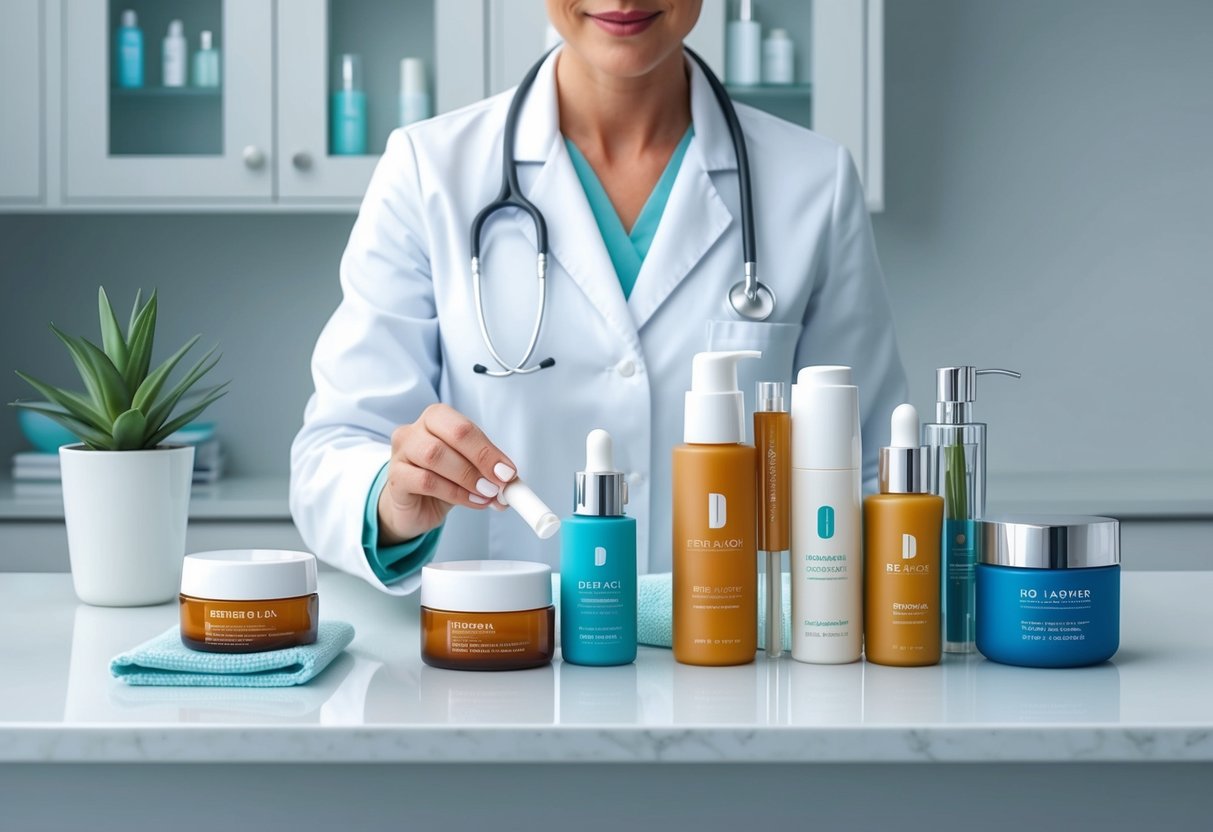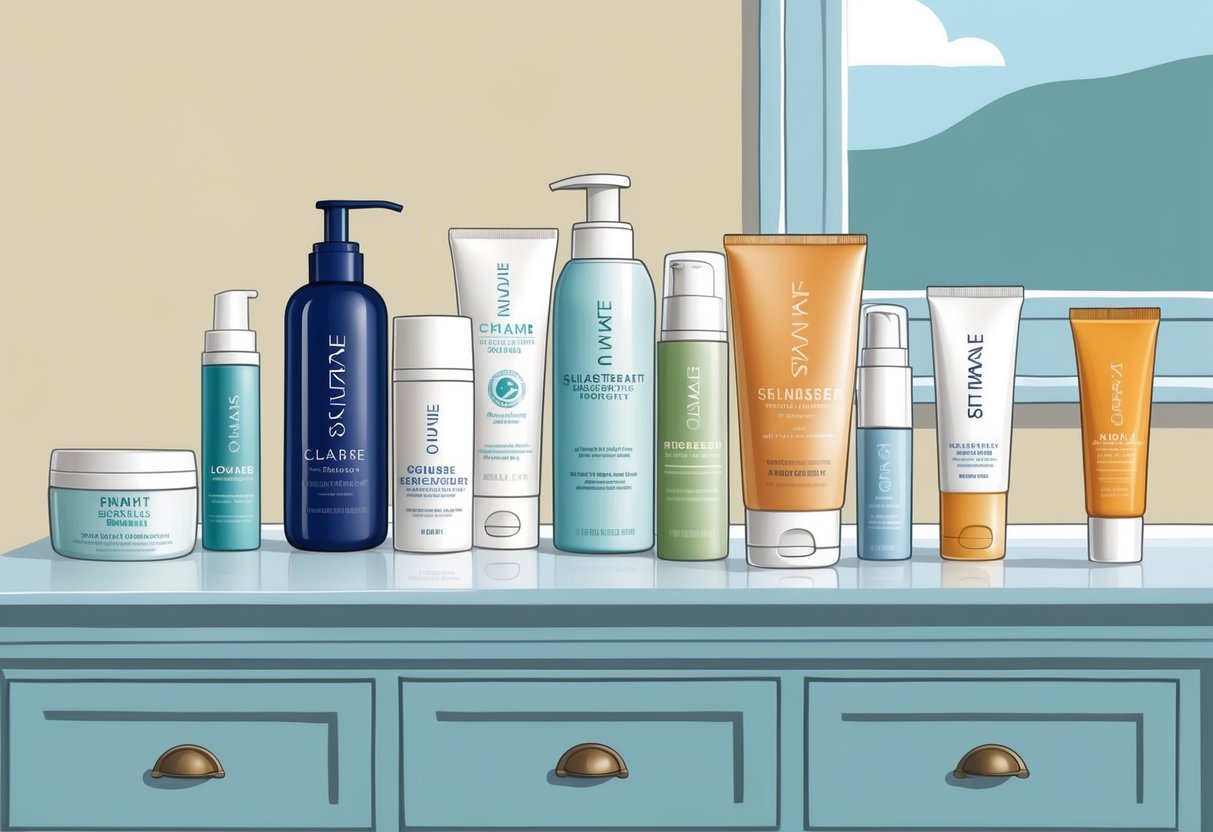Best Skincare Routine for Sensitive Skin: Dermatologist-Recommended Steps and Products
Exfoliation: Safe Approaches for Sensitive Skin

Exfoliation helps remove dead skin cells and reveal a smoother complexion, but individuals with sensitive skin need to use careful methods and gentle products to prevent irritation. The correct routine and product can support skin health and reduce the risk of skin barrier damage, redness, or stinging.
When and How to Exfoliate
Sensitive skin should be exfoliated less often than other skin types—usually one to two times per week is sufficient. Exfoliation can be done either in the morning or evening, but evening is often preferred to allow the skin to recover overnight.
Always start with clean, damp skin. Use light pressure and avoid scrubbing, as vigorous rubbing can trigger irritation or microscopic tears.
It is important not to combine physical and chemical exfoliators in the same session. After exfoliating, applying a fragrance-free, hydrating moisturizer helps to restore the protective barrier and soothe the skin.
Be alert for signs of over-exfoliation, like burning, peeling, or increased sensitivity, and reduce frequency if these occur. For those new to exfoliation or adjusting products, introducing new exfoliators gradually helps the skin adapt and minimizes adverse reactions.
More in-depth tips are available from the American Academy of Dermatology.
Choosing Gentle Exfoliators
Sensitive skin responds best to mild options, such as washcloths, very soft brushes, or gentle chemical exfoliants like polyhydroxy acids (PHAs) and lactic acid. PHAs, for example, are less likely to cause stinging or redness compared to harsher alpha hydroxy acids (AHAs) or physical scrubs.
Look for exfoliators specifically formulated for sensitive skin with soothing ingredients—avoid products that contain high concentrations of alcohol, synthetic fragrance, or strong physical particles. Many dermatologists and skin care professionals recommend choosing products labeled “gentle” or clinically tested for sensitive skin, such as the Aveeno Calm + Restore PHA Exfoliator.
Here’s a helpful checklist:
- Opt for low-strength chemical exfoliants: Look for PHAs or lactic acid.
- Avoid gritty scrubs and harsh brushes.
- Choose fragrance-free and minimalist ingredient lists.
To explore curated recommendations, lists like best exfoliators for sensitive skin highlight dermatologist-tested options for individuals seeking effective results without compromising comfort.
Balancing Skin Types and Concerns

Sensitive skin requires specialized care that takes into account dryness, oil production, and potential underlying conditions. Using dermatologist-recommended methods helps address specific issues like excess sebum, moisture loss, and flare-ups.
Managing Dry, Oily, and Combination Skin
People with sensitive skin often struggle with balancing hydration and oil, especially in areas like the t-zone. For dry skin, the best routine uses a gentle, fragrance-free cleanser and a hydrating moisturizer containing ceramides or hyaluronic acid.
Avoiding hot water and using lukewarm temperatures can help reduce irritation. For oily skin, focus on gentle, non-comedogenic products that target excess sebum without stripping the skin barrier.
Water-based or gel moisturizers are effective for hydration without heaviness. Those with combination skin should tailor their approach, such as using a richer moisturizer on dry areas while applying lighter formulas on the t-zone.
Dermatologists advise following core steps like cleansing, moisturizing, and sun protection to keep skin balanced daily.
Quick Tips Table for Sensitive Skin Types
| Skin Type | Key Needs | Recommended Ingredients |
|---|---|---|
| Dry | Deep hydration | Ceramides, Hyaluronic Acid |
| Oily | Oil control, non-greasy | Niacinamide, Water-based gels |
| Combination | Area-specific care | Lightweight & rich moisturizers |
Eczema and Other Sensitive Skin Conditions
Eczema is a chronic condition that requires barriers to lock in moisture and reduce flare-ups. People with eczema should prioritize fragrance-free and hypoallergenic products.
Short baths with gentle, non-soap cleansers are recommended over long, hot showers. These steps help reduce irritation and moisture loss.
Emollient-rich creams are preferred over lotions for eczema and similar sensitive skin conditions. Dermatologists also stress avoiding highly scented products and known triggers.
Basic care steps, including moisturizing immediately after bathing, are fundamental for managing eczema. More detailed advice on handling sensitivities is available in guides to caring for sensitive skin in different skin types.
Recommended Skincare Products and Brands

Dermatologist-recommended skincare for sensitive skin often includes gentle cleansers, fragrance-free serums, and lightweight moisturizers. Key ingredients such as centella asiatica, licorice extract, and non-comedogenic formulas are essential for maintaining a healthy skin barrier while minimizing irritation or breakouts.
Dermatologist-Approved Product Recommendations
When selecting products for sensitive skin, brands like La Roche-Posay and Vichy are frequently recommended by dermatologists. For daily cleansing, look for gentle options such as La Roche-Posay’s Gentle Foaming Cleansing Oil or the Toleriane Foaming Face Cream.
These cleansers remove impurities without over-drying or stripping the skin’s natural moisture barrier. Moisturizers are crucial in any sensitive skin routine.
The Centella Sensitive Cica-Cream is an excellent choice for calming irritation and reinforcing the skin barrier thanks to centella asiatica. When choosing toners, prioritize options labeled as alcohol-free toner and those containing calming ingredients like licorice extract to soothe sensitive skin and help reduce redness.
Oils such as a simple jojoba or squalane face oil can provide lightweight hydration and support repair, as long as they are labeled non-comedogenic.
For a concise reference, here is a list of product types and their features:
| Product Type | Recommended Feature | Example Brand |
|---|---|---|
| Cleanser | Gentle, non-foaming | La Roche-Posay |
| Moisturizer | Barrier-repair, cica-based | La Roche-Posay, Vichy |
| Toner | Alcohol-free, licorice | Paula’s Choice |
| Face Oil | Non-comedogenic | The Ordinary |
See more professional recommendations in this Vogue article on skincare routines.
What to Look for When Buying Online
When shopping for skincare products online, carefully review ingredient lists and product descriptions to ensure suitability for sensitive skin. Prioritize formulas described as fragrance-free, non-comedogenic, or labeled specifically for sensitive skin.
Reputable retailers and official brand sites can help avoid counterfeit or expired items. Examine user reviews with photos to assess how the product performs for others with similar sensitivities.
Look for ingredients like centella asiatica, hyaluronic acid, and licorice extract, as these are known for their soothing and barrier-repairing properties. Make sure any alcohol-free toner or moisturizer does not contain hidden irritants such as alcohol denat or artificial dyes.
It is also wise to check return policies in case of adverse reactions. Brands like La Roche-Posay and Vichy frequently offer sample or travel sizes, which allow patch testing before committing to full-size products.
Learn more about finding dermatologist-recommended and gentle skincare options when buying products online.



